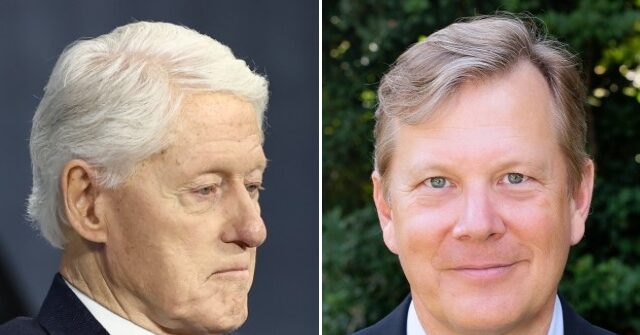Bill and Hillary Clinton have long been characterized as adept practitioners of political manipulation, a phenomenon often referred to as “The Clinton Blur.” This term encapsulates their ability to weave through scandals and enrich themselves while running a global charity that many critics label a grift machine. Recently, former President Bill Clinton has reignited the spotlight on these controversies, spurred by the release of his memoir, Citizen: My Life After the White House. Author Peter Schweizer, whose 2015 book Clinton Cash exposed myriad financial irregularities associated with the Clintons, notes that Clinton seems particularly incensed with his previous criticisms, suggesting this return to public discourse may not be entirely coincidental or harmless.
In the aftermath of Donald Trump’s election, Bill Clinton’s memoir attracted little attention, yet it features notable sections that specifically target Schweizer’s work. Clinton asserts that Clinton Cash was merely a politically motivated attack, designed to bolster far-right candidates. However, Schweizer counters this claim, clarifying that his investigation began in 2013, well before either Trump or Clinton announced their presidential intentions. He points out that the impetus for his research stemmed from the Clintons’ own financial disclosures, highlighting significant contributions to their foundation from various entities linked to foreign, corrupt governments, especially after Hillary took her role as Secretary of State.
Schweizer emphasizes that in 2009 alone, the Clinton Foundation amassed an impressive $250 million, a financial boom that persisted during Hillary’s tenure as Secretary of State. However, post-2013, contributions plummeted dramatically, marking a staggering 93% decline by 2020. Bill Clinton’s memoir endeavors to repurpose the narrative surrounding key revelations from Clinton Cash, particularly regarding the Uranium One deal, which was approved while Hillary held office. While Bill argues there was no scandal, saying Hillary did not personally oversee the deal, Schweizer maintains that the approval process was manipulated to obscure her involvement, particularly benefiting their foundation as significant donations flowed in.
Adding to the complexity, Bill Clinton’s memoir claims that major news outlets like The New York Times and The Washington Post colluded with Schweizer, branding him as a right-wing propagandist. Yet, Schweizer insists his research provided these outlets with corroborative material that they independently reported on. A notable instance involved Pulitzer Prize-winning journalist Jo Becker of the Times, whose front-page reporting on the Uranium One affair substantiated Schweizer’s findings. This narrative seemingly highlights how the media’s verification of the story challenges Bill Clinton’s claims of conspiracy, raising questions about the integrity of his assertions.
As the Clintons navigate the ongoing repercussions of Clinton Cash, questions arise regarding why Bill would reopen these old wounds now. Schweizer speculates that this could be linked to the ideological battles within the Democratic Party. With figures like AOC and Bernie Sanders pushing a progressive agenda, and a resulting decline in traditional Clintonism, there is a vested interest in resurrecting the Clintons’ legacy to reclaim influence within the party. This notion of a resurgence in Clintonism—marked by its pragmatic, centrist appeal—poses significant challenges, particularly for existing political dynamics under President Biden, who has also observed the monetization of power in the Clinton administration that may echo in his dealings, particularly regarding his son Hunter’s international business ventures.
Bill Clinton has expressed his frustration by attributing blame for Hillary’s 2016 loss to a variety of entities, including Schweizer and the New York Times. His admission of feelings of rage following that defeat betrays an underlying anxiety about the waning influence of the Clintons within the evolving landscape of the Democratic Party. While many political observers note that the Clintons’ approach—rooted in a mix of corporatism and triangulation—might seem outdated given new progressive contenders, the attempt to recast their legacy underscores a drive to remain relevant and possibly regain control within party ranks. As the Clintons grapple with their past and the changing political environment, it remains to be seen whether their strategy of revisiting old grievances will serve their interests or further entrench opposition to their legacy.

